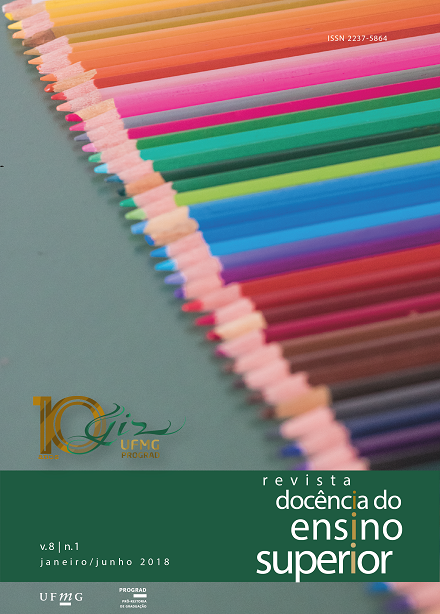Biological evolution and contemporary research
proposal of an investigative sequence for teacher training
DOI:
https://doi.org/10.35699/2237-5864.2018.2383Keywords:
Teacher training, Teaching by research, Biological evolutionAbstract
“How evolution has forged all the organisms that live in our planet?” This reflection raises speculations about the mechanisms envolved in origin or criation of the different existing or extincted organic forms on the planet. Darwinism and the Modern Synthesis explain this diversity based on the concepts of mutation, genetic drift and natural selection, which emphasize the DNA-centrist perspective of the evolutionary process. However, interactions among genes, organisms and environments can provide answers for the meaning of the word forge in the evolutionary context. From these questions about the organic diversity and the need to introduce these discussions in the teacher training, we developed a didatic proposal whose methodology was based on teaching by research. The exercises can provide an initial mainstay for insertion of discussions about contemporary evolution’s questions in classrooms from the hypothesis, discussions and research whose approach is the integrated and systematic design of biological knowledge.
Downloads
Downloads
Published
How to Cite
Issue
Section
License
Authors who publish in this journal retain the copyright and grant the journal the right of first publication, with the work simultaneously licensed under the Creative Commons Attribution License which allows the sharing of work with acknowledgment of authorship and initial publication in this journal.
Authors are authorized to take additional contracts separately, for non-exclusive distribution of the version of the work published in this journal (e.g. publish in institutional repository or as a book chapter), with acknowledgment of authorship and initial publication in this journal.
Open access policy:
Revista Docência do Ensino Superior is an Open Access journal, which means that all content is available free of charge, at no cost to the user or their institution. Users may read, download, copy, distribute, print, search, or link to the full texts of the articles, or use them for any other legal purpose, without seeking prior permission from the publisher or author, provided they respect the license to use the Creative Commons used by the journal. This definition of open access is in line with the Budapest Open Access Initiative (BOAI).
























